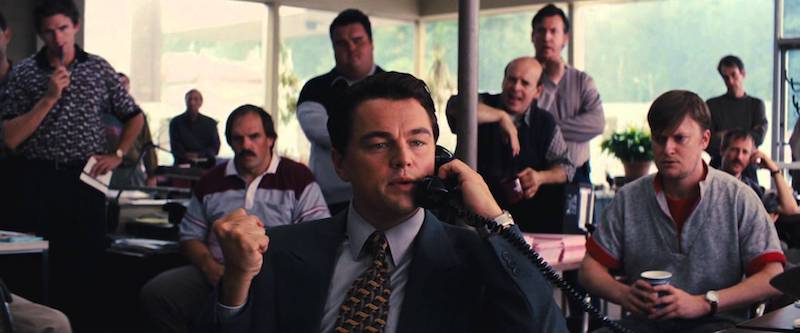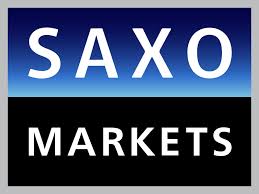
Most people own shares indirectly through their superannuation or, perhaps through investment platforms such as Raiz – this is a good place to start. Slack Investor would like to make the case for moving onto the next investment step and getting a broker for yourself. These days, a broker is usually an online platform that organizes buy and sell orders for shares and other financial bits.
It brings me shame … but Slack Investor doesn’t just have just one broker … I have three! This might seem a tad excessive – most people only need one and I thought I might share my experience with all of them to help you choose the right one for yourself. If you are serious about investing, you need a broker- Even Dilbert has a broker!

Getting a broker involves as much effort as getting a bank account – an associated trading account is usually required to store your cash when setting up. Most of this can be done online but there are a few identity checks to go through. I have set out below my experiences with my brokers – this is not a complete comparison and a good overview of recent offerings can be found at Best Online Brokers Australia for 2020. This field is rapidly changing with a move towards “zero brokerage” by some new players e.g. etoro. It is always a good idea to research the total costs for each of the new offers as there are often hidden fees such as “withdrawal fee”, “holding fee”, “inactivity fee “, etc. My experiences below might give you an idea on what to look for in your broker.
Commsec

Commsec was my first broker and it is the “gorilla” – It is Australia’s largest retail share trading platform and backed by the Commonwealth Bank. I use Commsec for my super fund trades.
Good things: A great trading platform with easy access to recent sales, buy/sell spread and research. One of the best thing about Commsec is that you can make a trade with zero money in your trading account and have 2 days before trade settlement to transfer your funds to your trading account. I have often sold a share and on the same day bought another share with the funds required covered by the previous sale – this gives great flexibility. Other than brokerage, there are no other fees for ASX shares.
Things that annoy me: The brokerage, this is on a sliding scale and range from $10 for a $1000 trade (1.0%) through to $19.95 for a $10000 trade (0.20%). Because most of Slack Investor’s trades are over $10000, I was pleasantly surprised to find that for the last financial year, my total Commsec costs were only 0.13% of trade value.
SelfWealth

SelfWealth is a much smaller trading house and has won Money Magazine’s “Cheapest Online Broker” award for the last three years. I use this for my own name accounts and was drawn in by their headline fixed price trades of $9.50 – no other fees.
Good things: A very cheap trading rate – my costs for 6 trades in the last 12 months amounted to 0.08% of trade value.
Things that annoy me: The SelfWealth trading platform is not as good as Commsec’s and transfers to and from the trading account are terribly slow. This is annoying as they don’t allow trades till there is money in the trading account. So, before I act on a trade I must first move money into the SelfWealth trading account – this may be days after I first see a trading opportunity!
Saxo Markets

Saxo Markets is a broker that I have only recently signed up with as my SMSF manager (esuperfund) required me to go through Saxo if I wanted to own overseas shares. Total costs will depend on how much you trade … but after the smooth Australian experience, the cheap trading fee is complicated by Currency Exchange fees, Inactivity fees and Holding fees. For the past year, my costs add up to 0.42% of trades.
Good things: The ability to buy other international stocks. Many other brokers also offer this.
Things that annoy me: The fees of course … and the confusing trading platform. I wouldn’t use these jokers if I had a choice. Particularly when there are cheaper ways to access the US market.- Stake has a similar currency conversion fee to Saxo without the multitude of other costs.
Stock broking expenses compared to Real Estate
Slack Investor stock broker transaction fees range between 0.08% and 0.42% of trade value – and I’m leaning towards Commsec as my favourite broker on a costs vs features basis. If I was just starting out, maybe SelfWealth, or one of the zero brokerage platforms – but watch out for other fees!

I might have had a little whinge about broker fees … but let’s just have a reality check with another common investment commodity where there are costs involved – Real Estate.
I have recently bought and sold a house and the transfer costs are relatively staggering.
When selling a house (Agent Fees, Conveyancing Fees, Advertising, Govt fees,etc), my transaction costs were 2.7%. When buying a house in Victoria, excluding loan costs, (Stamp duty, Land Titles, Conveyancing) the costs worked out to 5.8% of the purchase price.
Transaction costs are just part of investing, but it is no wonder that Slack Investor is attracted to the lower fees, simplicity and transparency of share trading over property trading. However, the volatility of shares I find testing at times.
